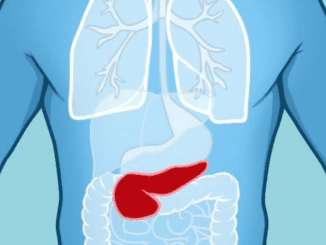
When it comes to fertility, the spotlight often falls on women’s health. But here’s the truth—male reproductive health is equally critical, and semen quality plays a starring role in the journey to conception. Recent research reveals that everyday lifestyle choices—what you eat, how you move, how you handle stress—can directly influence sperm health. These choices affect not just the chances of conception, but also embryo development and long-term reproductive outcomes.
This guide will break down how lifestyle impacts semen quality and share actionable steps to naturally boost male fertility.
Why Semen Quality Matters
Semen quality isn’t just a medical term—it’s the scoreboard for male fertility potential. Experts measure it by three key parameters:
- Motility – The sperm’s ability to swim effectively toward the egg.
- Morphology – The size, shape, and structure of sperm cells.
- Concentration – The number of sperm per milliliter of semen.
Healthy sperm means higher odds of conception. On the flip side, poor semen quality can significantly lower fertility potential—even in couples where both partners appear healthy.
The Fertility Power of Nutrition
Think of your diet as the fuel your reproductive system runs on. The right nutrients can fine-tune motility, improve morphology, and increase sperm concentration while defending sperm DNA from oxidative damage.
Key nutrients for optimal sperm health:
- Zinc – Essential for sperm production and testosterone regulation.
- Selenium – Boosts motility and shields cells from oxidative stress.
- Vitamin C & E – Potent antioxidants that protect sperm DNA integrity.
Top fertility-friendly foods:
- Nuts & seeds – Loaded with omega-3 fatty acids for cell membrane health.
- Citrus fruits – Packed with vitamin C to enhance motility.
- Leafy greens – Rich in folate and antioxidants crucial for sperm formation.
A plate full of colorful, nutrient-dense foods can be more effective than any quick-fix supplement.
Video : How to Improve Sperm Quality & Quantity | Men’s Fertility Tips
Exercise & Semen Health: Striking the Right Balance
Exercise is like a natural hormone regulator—it boosts testosterone, enhances blood flow, and helps balance overall reproductive health.
Best approach:
- Moderate activity – Swimming, cycling, and brisk walking are great options.
- Avoid overtraining – Excessive high-intensity workouts can raise oxidative stress and lower testosterone.
- Consistency over intensity – Aim for 150 minutes of moderate exercise weekly.
The goal is movement that energizes you, not drains you.
Stress: The Silent Fertility Killer
Stress doesn’t just affect your mood—it disrupts your hormones. Chronic stress raises cortisol levels, which interfere with testosterone production, reduce sperm quality, and can even lower libido.
Stress-busting strategies:
- Daily mindfulness or meditation – Even 10 minutes can make a difference.
- Prioritize sleep – 7–9 hours of quality rest each night.
- Engage in hobbies – Creative or outdoor activities help balance your mind and body.
Think of stress as an invisible toxin—managing it is as essential as eating well.
Natural Remedies to Boost Semen Quality
Nature offers several powerful fertility allies:
- Maca root – Known to improve libido and support sperm count.
- Ashwagandha – Balances hormones and reduces stress-driven fertility issues.
- Coenzyme Q10 – Powers sperm cell energy and boosts motility.
- Omega-3 fatty acids – Strengthen sperm cell structure and flexibility.
Adding these to your routine—under professional guidance—can give your fertility journey a natural boost.
Small Changes, Big Impact
Improving semen quality doesn’t require a radical overhaul—it’s about making small, consistent changes that work together:
- Choose whole, nutrient-rich foods daily.
- Move your body without overtraining.
- Manage stress like it’s part of your job description.
- Supplement wisely with proven natural remedies.
Video : Foods to increase higher sperm count | How to improve sperm quality naturally at home
Conclusion
Semen quality is a key player in the fertility equation, and it’s influenced far more by lifestyle than most people realize. By fueling your body with the right nutrients, keeping your workouts balanced, tackling stress head-on, and considering natural remedies, you can give your reproductive health the best possible shot.
Fertility is a shared journey. When both partners take responsibility for their reproductive well-being, the chances of conceiving—and sustaining—a healthy pregnancy increase dramatically. In short, healthy sperm isn’t just about numbers—it’s about the quality of life you build, one choice at a time.


